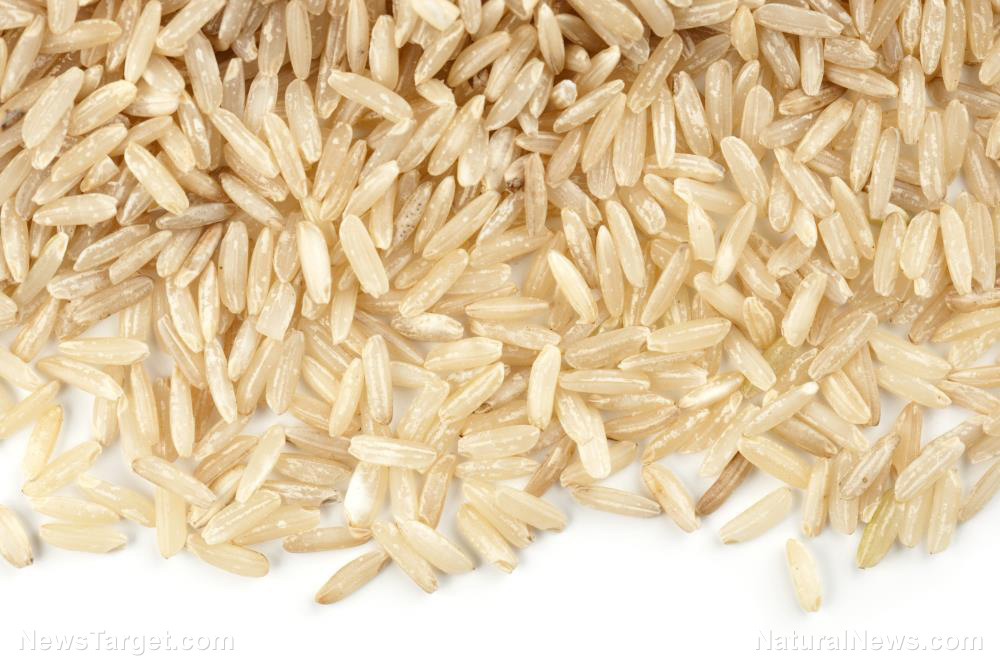Eating a high-fat Western diet increases your risk of colon cancer
04/03/2019 / By Michelle Simmons

Adhering to a high-fat diet has been proven to be harmful to health. A new study gives another reason why you should stop following this type of diet. Published in the journal Nutrition Research, the study found that it causes obesity, which in turn, contributes to the development of colon cancer.
Colon cancer has been associated with obesity. In addition, the increasing incidence of colon cancer has been linked to the spread of the Western lifestyle, particularly in the consumption of a high-fat diet. (Related: High-fat diet found to stimulate cell growth in the colon, increasing risk of colon cancer.)
For the study, researchers at Auburn University and Bassett Medical Center sought to determine the effects of high-fat diet induced obesity on the growth of human colon cancer tumors in a mouse model. They also looked at the possible mechanisms that trigger obesity-linked human colon cancer tumor growth. They hypothesized that the high-fat Western diet would cause insulin resistance and obesity in mice, which will increase and accelerate tumor growth.
To test their hypothesis, they fed mice with either a low-fat diet or high-fat Western diet. Then, they implanted human colon cancer xenografts in mice.
Based on the results of the study, mice fed with a high-fat Western diet gained weight and had increased intra-abdominal fat. Mice in this group also exhibited greater tumor weight compared to mice fed with a low-fat diet. In addition, they exhibited higher levels of leptin, but there was no correlation between leptin levels and tumor size. From these findings, the researchers concluded that adherence to a high-fat Western diet causes obesity and insulin resistance. These, in turn, contribute to the faster growth of colon cancer.
Another study reveals how high-fat diets contribute to colorectal cancer growth
Another study looked at how high-fat diets promote colorectal cancer growth. The study, which was published in the journal Cell, found that high-fat diets promote colorectal cancer growth by causing an imbalance of bile acids in the intestine and triggering a hormonal signal that enables potentially cancerous cells thrive.
Researchers at the Salk Institute conducted their research using a mouse model with an APC mutation. APC is a gene that normally acts as a tumor suppressor because it controls how frequent cells divide. However, mutations in this gene can remove that control and enable cells to divide rapidly and become cancerous.
Earlier studies have shown that bile acids send hormonal signals to intestinal stem cells through a protein called the Farnesoid X receptor (FXR). The gut repairs itself and FXR keeps the process slow, steady, and safe. When the current study’s researchers fed the mice with a high-fat diet, the levels of two particular bile acids that inhibit the activity of FXR increased. When FXR activity is suppressed, a group of stem cells begins to grow rapidly and build up DNA damage.
At the same time, the development of cancer started. Moreover, the presence of additional bile acids accelerated cancer progression. The mice with APC mutations developed adenomas, which are non-cancerous growths. In humans, these growths are common in the intestine and are regularly removed during colonoscopies. They typically take decades to turn into malignant adenocarcinomas. However, the adenomas in these mice rapidly turned cancerous upon the feeding of high-fat diets.
The researchers concluded that maintaining a balance of bile acids is essential in reducing cancer growth. They also suggested that these findings could explain why colorectal cancer is being seen in younger people growing up at a time when higher-fat diets are common.
Read more news stories and studies on the negative health effects of high-fat diets by going to CancerCauses.news.
Sources include:
Tagged Under: cancer, cancer risks, cancer tumors, colon cancer, Colorectal Cancer, fast food, fats, food science, high-fat diet, high-fat diets, insulin resistance, lifestyle habits, nutrition, obesity, obesity crisis, western diet

















